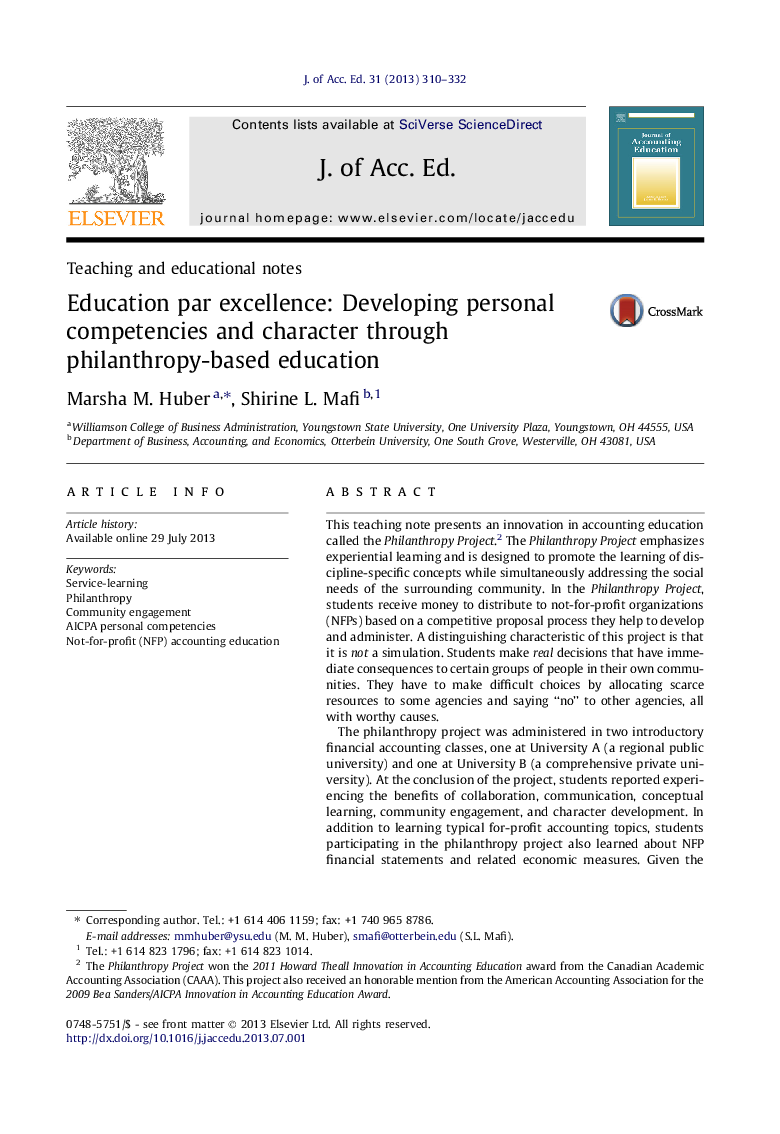| Article ID | Journal | Published Year | Pages | File Type |
|---|---|---|---|---|
| 359435 | Journal of Accounting Education | 2013 | 23 Pages |
•This is the first description of a philanthropy-based project in accounting education.•Students make real decisions about funding that impacts the local community.•The Philanthropy Project focuses on developing AICPA personal competencies.•Community engagement develops collaboration, critical thinking, and character.•Guidelines and templates are provided to support the implementation of the project.
This teaching note presents an innovation in accounting education called the Philanthropy Project.2 The Philanthropy Project emphasizes experiential learning and is designed to promote the learning of discipline-specific concepts while simultaneously addressing the social needs of the surrounding community. In the Philanthropy Project, students receive money to distribute to not-for-profit organizations (NFPs) based on a competitive proposal process they help to develop and administer. A distinguishing characteristic of this project is that it is not a simulation. Students make real decisions that have immediate consequences to certain groups of people in their own communities. They have to make difficult choices by allocating scarce resources to some agencies and saying “no” to other agencies, all with worthy causes.The philanthropy project was administered in two introductory financial accounting classes, one at University A (a regional public university) and one at University B (a comprehensive private university). At the conclusion of the project, students reported experiencing the benefits of collaboration, communication, conceptual learning, community engagement, and character development. In addition to learning typical for-profit accounting topics, students participating in the philanthropy project also learned about NFP financial statements and related economic measures. Given the specified not-for-profit context, this project could be relevant for governmental and not-for-profit accounting classes. A timeline of activities, grading rubric, and templates are provided to aid in the adoption of this project by other accounting educators.
